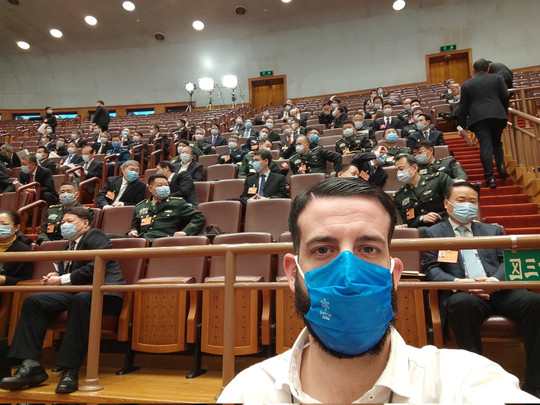Agustin Yanel, the General Secretary of the Federation of Journalists' Trade Unions (FeSP) said: "The Federation of Journalists' Unions in Spain (FeSP) rejects the attempt to intimidate the journalist Jaime Santirso and the closure of the ABC website which, since last year, cannot be visited in China.
This is not the first time that the Chinese government has hindered the work of foreign correspondents in that country. This is a practice that we condemn because it is a serious attack on freedom of information and on the right to information of the citizens of that country.
The FeSP urges the Chinese embassy in Madrid not to allude to journalists in its publications when they do not like their information, as it has done with Santirso. If they consider that the information contains errors they can use the channels of rectification that exist in the Spanish legislation".
Marta Barcenilla Escaño from the Federación de Servicios a la Ciudadanía de CCOO (CCOO Federation of Citizen Services) said:"The FSC - CCOO journalists' grouping considers unacceptable that the Chinese authorities try to intimidate Spanish correspondents in China and even more that they block the websites of Spanish media, as they did with ABC last year.
The Beijing government has to understand that the right to information is a human right and must guarantee the integrity of foreign journalists as well as national ones.
We hope that Jaime Santirso and the rest of the Spanish correspondents in China can continue to do their work from Beijing without further harassment by the Chinese government. Journalism is not a crime, it is a fundamental right."
The IFJ said: "The IFJ has documented a clear pattern of harassment or intimidation of journalists from countries that do not follow in step with China's line, particularly on any sensitive topics. It is this type of intimidation that has forced other correspondents to leave their posts or relocate. Wolf warrior diplomacy and pressure from the state, combined with outright blocking like this, is part of a strategy to control the media narrative and attack foreign journalists' independence.”

